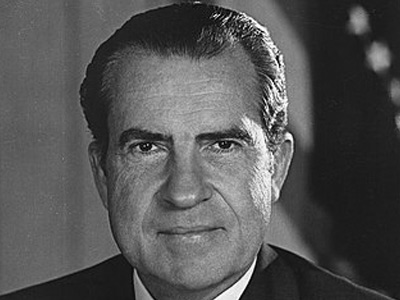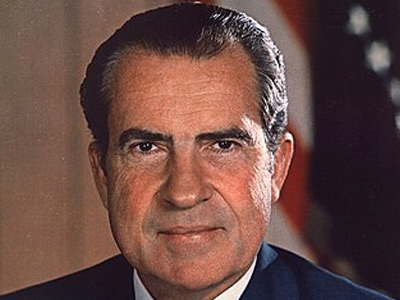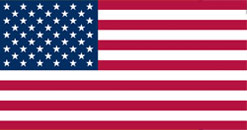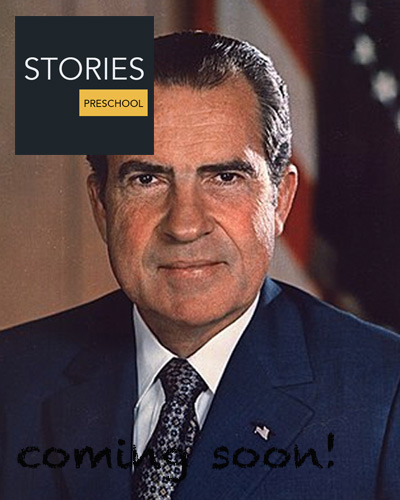Legacy
Historian and political scientist James MacGregor Burns asked of Nixon, "How can one evaluate such an idiosyncratic president, so brilliant and so morally lacking?" Nixon's biographers disagree on how he will be perceived by posterity. According to Ambrose, "Nixon wanted to be judged by what he accomplished. What he will be remembered for is the nightmare he put the country through in his second term and for his resignation." Irwin Gellman, who chronicled Nixon's Congressional career, suggests that "he was remarkable among his congressional peers, a success story in a troubled era, one who steered a sensible anti-Communist course against the excess of McCarthy". Aitken feels that "Nixon, both as a man and as a statesman, has been excessively maligned for his faults and inadequately recognised for his virtues. Yet even in a spirit of historical revisionism, no simple verdict is possible."
Some historians say Nixon's Southern Strategy turned the Southern United States into a Republican stronghold, while others deem economic factors more important in the change. Throughout his career, Nixon moved his party away from the control of isolationists, and as a Congressman he was a persuasive advocate of containing Soviet communism. According to his biographer Herbert Parmet, "Nixon's role was to steer the Republican party along a middle course, somewhere between the competitive impulses of the Rockefellers, the Goldwaters, and the Reagans."
Nixon's stance on domestic affairs has been credited with the passage and enforcement of environmental and regulatory legislation. In a 2011 paper on Nixon and the environment, historian Paul Charles Milazzo points to Nixon's creation of the United States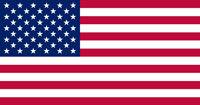 The United States of America (U.S.A. or USA), commonly known as the United States (U.S. or US) or America, is a country in North America. It is the world's third-largest country by both land and total area. The United States shares land borders with Canada to its north and with Mexico to its south. The national capital is Washington, D.C., and the most populous city and financial center is New York City. Environmental Protection Agency (EPA), and to his enforcement of legislation such as the 1973 Endangered Species Act, stating that "though unsought and unacknowledged, Richard Nixon's environmental legacy is secure". Nixon himself did not consider the environmental advances he made in office an important part of his legacy; some historians contend that his choices were driven more by political expediency than any strong environmentalism.
The United States of America (U.S.A. or USA), commonly known as the United States (U.S. or US) or America, is a country in North America. It is the world's third-largest country by both land and total area. The United States shares land borders with Canada to its north and with Mexico to its south. The national capital is Washington, D.C., and the most populous city and financial center is New York City. Environmental Protection Agency (EPA), and to his enforcement of legislation such as the 1973 Endangered Species Act, stating that "though unsought and unacknowledged, Richard Nixon's environmental legacy is secure". Nixon himself did not consider the environmental advances he made in office an important part of his legacy; some historians contend that his choices were driven more by political expediency than any strong environmentalism.
Nixon saw his policies on Vietnam, China, and the Soviet Union Soviet Union, officially the Union of Soviet Socialist Republics (USSR), was a transcontinental country that spanned much of Eurasia from 1922 to 1991. The Soviet Union fall process began with growing unrest in the Union's various constituent national republics developing into an incessant political and legislative conflict between them and the central government. Estonia was the first Soviet republic to declare state sovereignty inside the Union. as central to his place in history. Nixon's onetime opponent George McGovern commented in 1983, "President Nixon probably had a more practical approach to the two superpowers, China and the Soviet Union, than any other president since World War II
Soviet Union, officially the Union of Soviet Socialist Republics (USSR), was a transcontinental country that spanned much of Eurasia from 1922 to 1991. The Soviet Union fall process began with growing unrest in the Union's various constituent national republics developing into an incessant political and legislative conflict between them and the central government. Estonia was the first Soviet republic to declare state sovereignty inside the Union. as central to his place in history. Nixon's onetime opponent George McGovern commented in 1983, "President Nixon probably had a more practical approach to the two superpowers, China and the Soviet Union, than any other president since World War II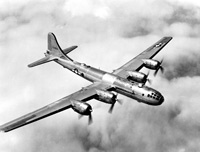 World War II or the Second World War, often abbreviated as WWII or WW2, was a world war that lasted from 1939 to 1945. It involved the vast majority of the world's countries—including all of the great powers—forming two opposing military alliances: the Allies and the Axis powers. World War II was a total war that directly involved more than 100 million personnel from more than 30 countries. World War II is generally considered to have begun on 1 September 1939, when Nazi Germany, under Adolf Hitler, invaded Poland. View World War II » [...] With the exception of his inexcusable continuation of the war in Vietnam, Nixon really will get high marks in history." Political scientist Jussi Hanhimäki disagrees, saying that Nixon's diplomacy was merely a continuation of the Cold War policy of containment by diplomatic, rather than military means. Historian Christopher Andrew concludes that "Nixon was a great statesman on the world stage as well as a shabby practitioner of electoral politics in the domestic arena. While the criminal farce of Watergate was in the making, Nixon's inspirational statesmanship was establishing new working relationships both with Communist China and with the Soviet Union."
World War II or the Second World War, often abbreviated as WWII or WW2, was a world war that lasted from 1939 to 1945. It involved the vast majority of the world's countries—including all of the great powers—forming two opposing military alliances: the Allies and the Axis powers. World War II was a total war that directly involved more than 100 million personnel from more than 30 countries. World War II is generally considered to have begun on 1 September 1939, when Nazi Germany, under Adolf Hitler, invaded Poland. View World War II » [...] With the exception of his inexcusable continuation of the war in Vietnam, Nixon really will get high marks in history." Political scientist Jussi Hanhimäki disagrees, saying that Nixon's diplomacy was merely a continuation of the Cold War policy of containment by diplomatic, rather than military means. Historian Christopher Andrew concludes that "Nixon was a great statesman on the world stage as well as a shabby practitioner of electoral politics in the domestic arena. While the criminal farce of Watergate was in the making, Nixon's inspirational statesmanship was establishing new working relationships both with Communist China and with the Soviet Union."
Historian Keith W. Olson has written that Nixon left a legacy of fundamental mistrust of government, rooted in Vietnam and Watergate. In surveys of historians and political scientists, Nixon is generally ranked as a below average president. During the impeachment of Bill Clinton in 1998, both sides tried to use Nixon and Watergate to their advantage: Republicans suggested that Clinton's misconduct was comparable to Nixon's, while Democrats contended that Nixon's actions had been far more serious than Clinton's. Another legacy, for a time, was a decrease in the power of the presidency as Congress passed restrictive legislation in the wake of Watergate. Olson suggests that legislation in the aftermath of the September 11 attacks restored the president's power.
HISTORY
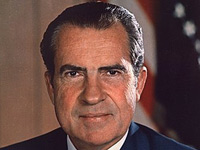
RESOURCES
This article uses material from the Wikipedia article "Richard Nixon (1913-1994)", which is released under the Creative Commons Attribution-Share-Alike License 3.0.
© Stories Preschool. All Rights Reserved.
